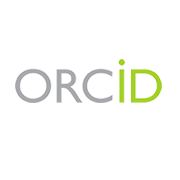As the author of research publications, you may use author identifiers to ensure you get credit for all your research outputs. Author identifier is a unique identification number assigned to a researcher to avoid the author ambiguity problem. An author name can be expressed in different variants (Wong, Siu Li or Siu Li Wong) whereas different names may be indexed in the same way by the databases. English transliteration of Chinese names may cause confusion as well. With an author identifier, you can make yourself distinguishable among other researchers who share a similar name and research interest with you.
Another benefit of author identity management is that you can accurately track the citation metrics of your publications. Web of Science, Scopus, and Google Scholar are the major databases that provide citation metrics information. You can use author identifiers to manage your publications in the author profile of these databases. With a well-managed profile, you can always get updated and accurate citation metrics on your publications.
ORCID, Publons, Scopus, and Google Scholar are the most commonly used author identity and profile systems. Below are their major features.
 |
 |
 |
 |
|
| Identifier | ORCID iD | ResearcherID | Scopus Author Identifier | Google account |
| Require Registration | Yes | Yes | No | Yes |
| Citation Metrics | No | Yes, based on Web of Science Core (WoS) Collection. | Yes, based on Scopus. | Yes, based on Google Scholar. |
| Scope | Research and funding activities | Publications indexed in WoS, peer reviews and editorial work | Publications indexed in Scopus | Publications indexed in Google Scholar |
| Strength | ORCID iD is frequently required for submission by funders and publishers. | ResearcherID is searchable in WoS. | Scopus automatically create a profile for you. You may review and request to merge multiple profiles. | Google Scholar includes non-English publications and regional publications. |
| Library Guides | ORCID Guide | WoS Researcher Profile Guide | Google Scholar Profile Guide |

